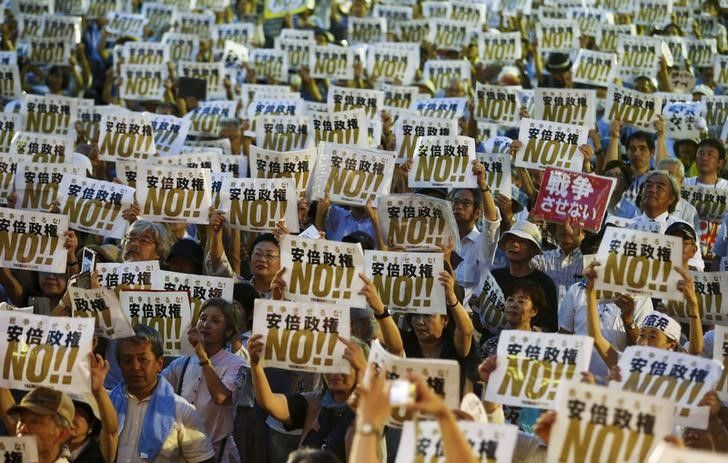Poll Show Majority Of Japanese Oppose Security Bills As Vote Looms

TOKYO (Reuters) - More than half of voters in Japan are opposed to their government's plans to enact legislation this month that would allow Japanese troops to fight abroad for the first time since World War II, a newspaper poll showed on Monday.
Despite big public protests, Prime Minister Shinzo Abe's ruling bloc wants to pass the security bills before parliament ends its session on Sept. 27. A vote in the upper house is expected this week.
A poll carried out over the weekend and published on Monday by Asahi Shimbun showed 54 percent of respondents opposed the legislation against 29 percent who backed it, and 68 percent saw no need to enact the bills during the current session.
Three-quarters of the respondents said the debate has been insufficient, in line with other surveys.
Abe's ruling bloc has a majority in the upper house, but opposition parties have vowed to use all possible means to prevent a vote, including delaying procedures by submitting time-consuming non-confidence and censure motions.
Support for Abe's government fell to 36 percent, the survey showed, the lowest rate since he took the office in December 2013 and down from 38 percent in last month's poll. Abe's disapproval rating inched up to 42 percent from 41 percent.
Abe last week won a rare second consecutive term as a ruling party chief, and hence premier, pledging to retain focus on reviving the world's third-largest economy and deepen debate on revising its pacifist constitution.
© Copyright IBTimes 2024. All rights reserved.





















